Workshop Title:
Employing Artificial Intelligence Technologies for Web and Social Media Textual Data
Date:
January 24th, 2024 (GMT)
Organizer:
School of Computing, University of Portsmouth
Keywords:
- Artificial Intelligence
- Web Data
- Social Media Data
- Machine Learning
- Natural Language Processing
- Data Analytics
- Ethical Considerations
- Computational Tools
- Textual Data
- Lexicons
Workshop Chair:
Personal Bio:
Dr. Ella Haig is currently an Associate Professor/Reader in Artificial Intelligence in the School of Computing at the University of Portsmouth. She holds a Masters by Research from National College of Ireland and a PhD from Birkbeck College, University of London; she was a visiting researcher at the Ecole Polytechnique Fédérale de Lausanne (EPFL), Switzerland. Her research is on human-centred Artificial Intelligence, through the use of data to understand human behaviour and support decision-making. She has over 120 publications in peer-review journals and conferences, as well as two research monographs and three edited volumes. She received the 2010 Best PhD Student Paper Award at the 14th International Conference on Knowledge-Based and Intelligent Information & Engineering Systems, and the 2018 Best Paper Award at the 17th IEEE International Symposium on Network Computing and Applications (IEEE NCA). She is an IEEE Member and is part of the Editorial Board for the User Modeling and User-Adapted Interaction (UMUAI) journal and the Engineering Applications of Artificial Intelligence (EAAAI) journal.
Team of Workshop Committee:
Dr. Alaa Mohasseb University of Portsmouth alaa.mohasseb@port.ac.uk
Dr. Sercan Ozcan University of Portsmouth sercan.ozcan@port.ac.uk
Dr. Oluwatobi Fajana University of Portsmouth oluwatobi.fajana@port.ac.uk
Workshop Description:
Background:
Nowadays we have access to vast amounts of data, with the Web and Social Media being two of the most prolific sources of data. A large proportion of this data is unstructured and in textual format, making it difficult to analyse, however, it can bring valuable insights in a variety of contexts. For example: (1) businesses can monitor and respond to customer reviews to manage their brand both in terms of identifying what aspects of their products need improvement, as well as managing the relation with the customers by responding promptly to any issues; (2) campaigners for charities (such as for social justice and the environment) can use insights from social media and web platforms for developing better campaigns for gaining support and recruiting volunteers.
Goal/Rationale:
Human language is complex, dynamic and sometimes inconsistent, which presents challenges for processing this type of data. For example, the word "mean" can refer to three completely different interpretations: (a) a mathematical mean, (b) describing someone as unkind or spiteful, and (c) conveying or describing something. For the web and social media in particular, we have the additional challenges brought by the use of slang and colloquialisms, and by misspelled words or concatenated words such as in hashtags. There are a number of techniques available for dealing with these issues, which are covered in the workshop, together with machine learning approaches (both unsupervised and supervised) for textual analysis.
Scope and Information for Participants:
The workshop on "Employing Artificial Intelligence Technologies for Web and Social Media Textual Data" covers a variety of computational tools for textual data analysis and includes three case studies for discussion with the participants. More specifically, the following will be covered:
1. Introduction to textual data and the challenges presented by this data format for analysis.
2. Natural Language Preprocessing techniques for textual data to remove potential noise.
3. Transforming textual data into a structure format; a variety of formats will be covered, including transformer-based embeddings.
4. Making use of lexicons for sentiment analysis and emotion detection from text.
5. Unsupervised machine learning from text using Latent Dirichlet Allocation (LDA) and BERTopic.
6. Supervised machine learning with several classifiers, including BERT.
7. Discussing three case studies using web and social media textual data.
Highlight:
The CONF CIAP 2024 workshop on “Employing Artificial Intelligence Technologies for Web and Social Media Textual Data” took place on 24 January 2024 at the University of Portsmouth. Several computational tools for textual data analysis were covered, and three case studies were included for discussion among the participants.
The workshop started by outlining the need to structure textual data into a format that is usable by Artificial Intelligence algorithms and the challenges encountered when transforming the text into a structured format. A variety of Natural Language Processing techniques (NLP) were covered for data preparation, as well as capturing meaning from the text. Lexicons and dictionaries were also covered, including their use in sentiment analysis and emotion detection.
For structured textual representation, the well-known bag-of-words and tf-ifd techniques were covered, as well as word/doc embeddings and the most recent developments in pre-trained Large Language Models.
Supervised and unsupervised machine learning techniques were discussed for extracting meaning from textual data. In terms of supervised techniques, well-known algorithms such as Naïve Bayes and Support Vector Machines were presented, as well as the use of pre-trained Large Language Models such as BERT, and their fine-tuning. Unsupervised techniques for topic extraction from text included Latent Dirichlet Allocation (LDA), and the use of pre-trained BERT models in combination with different clustering techniques.
Finally, three case studies on the analysis of social media posts and news articles were introduced and the participants discussed the suitability of the covered methods and techniques for these case studies.
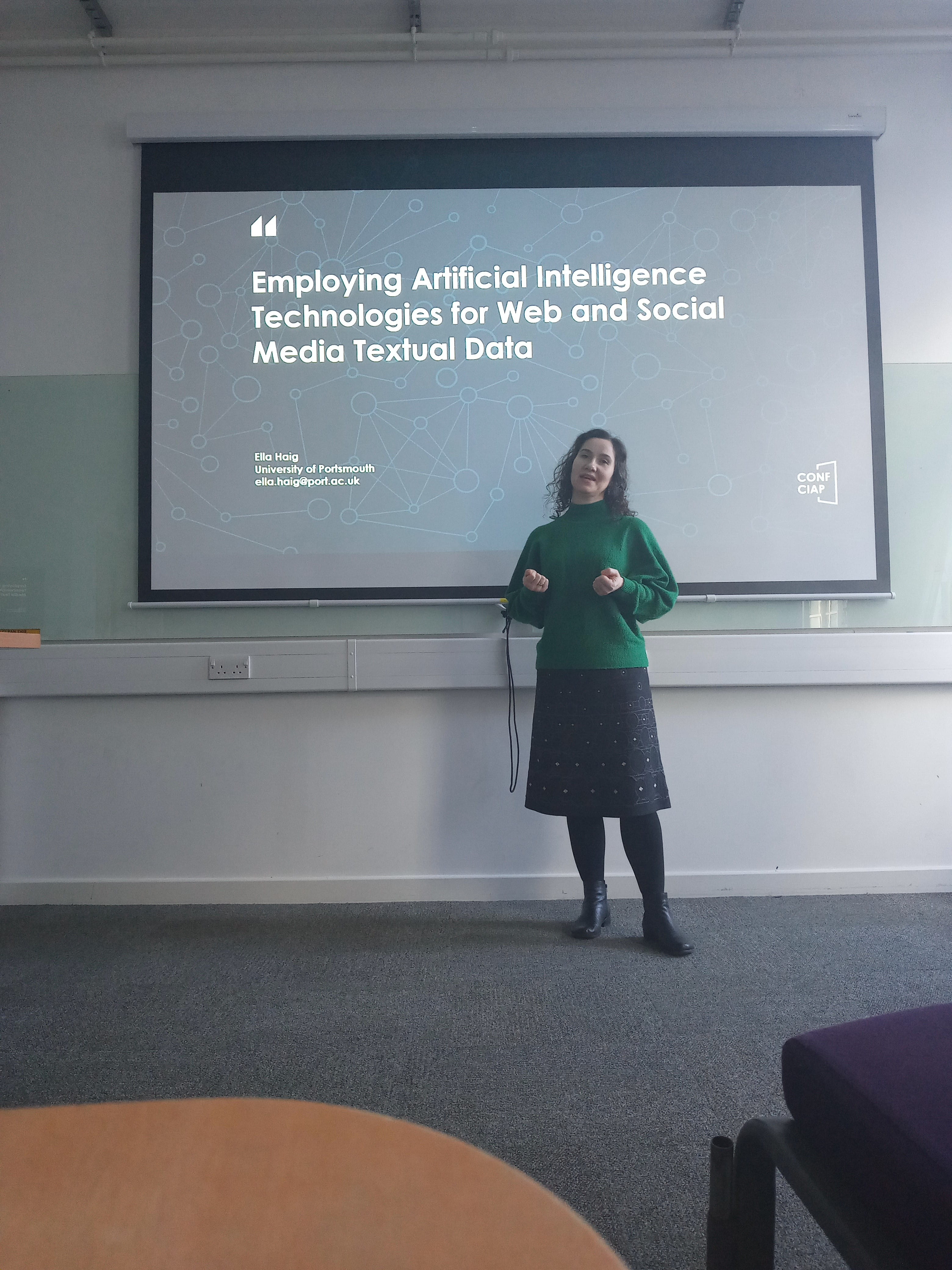
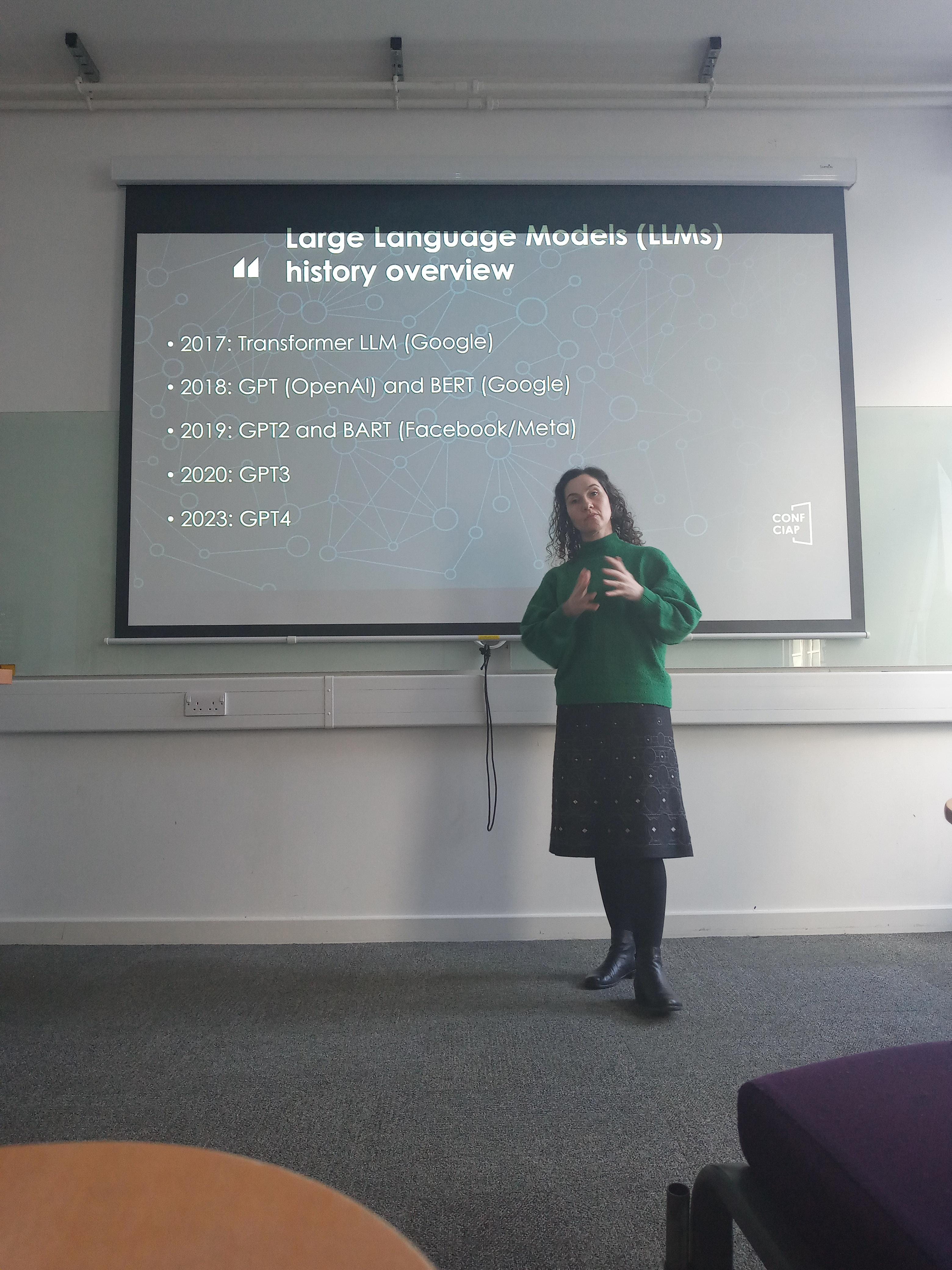
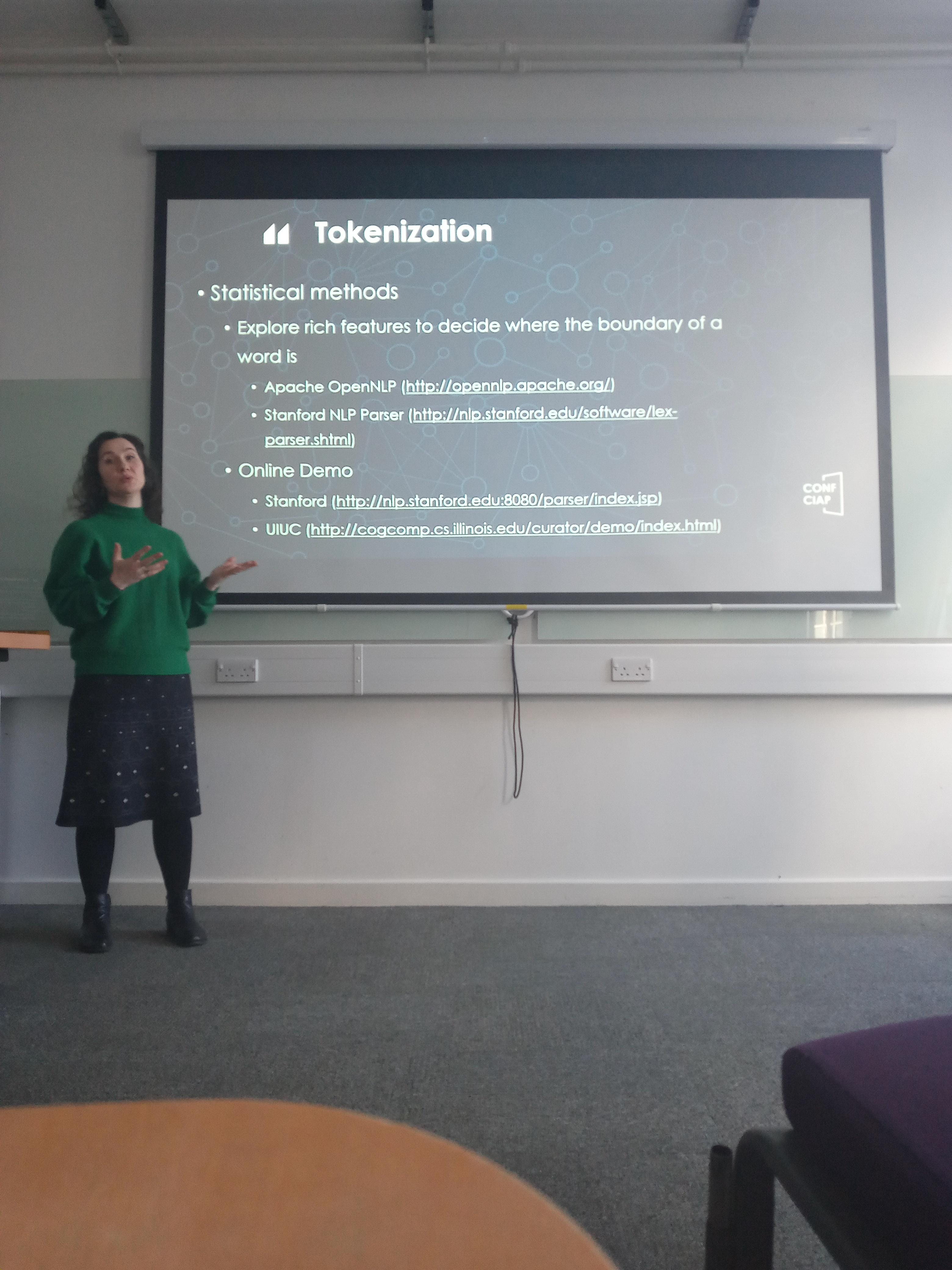
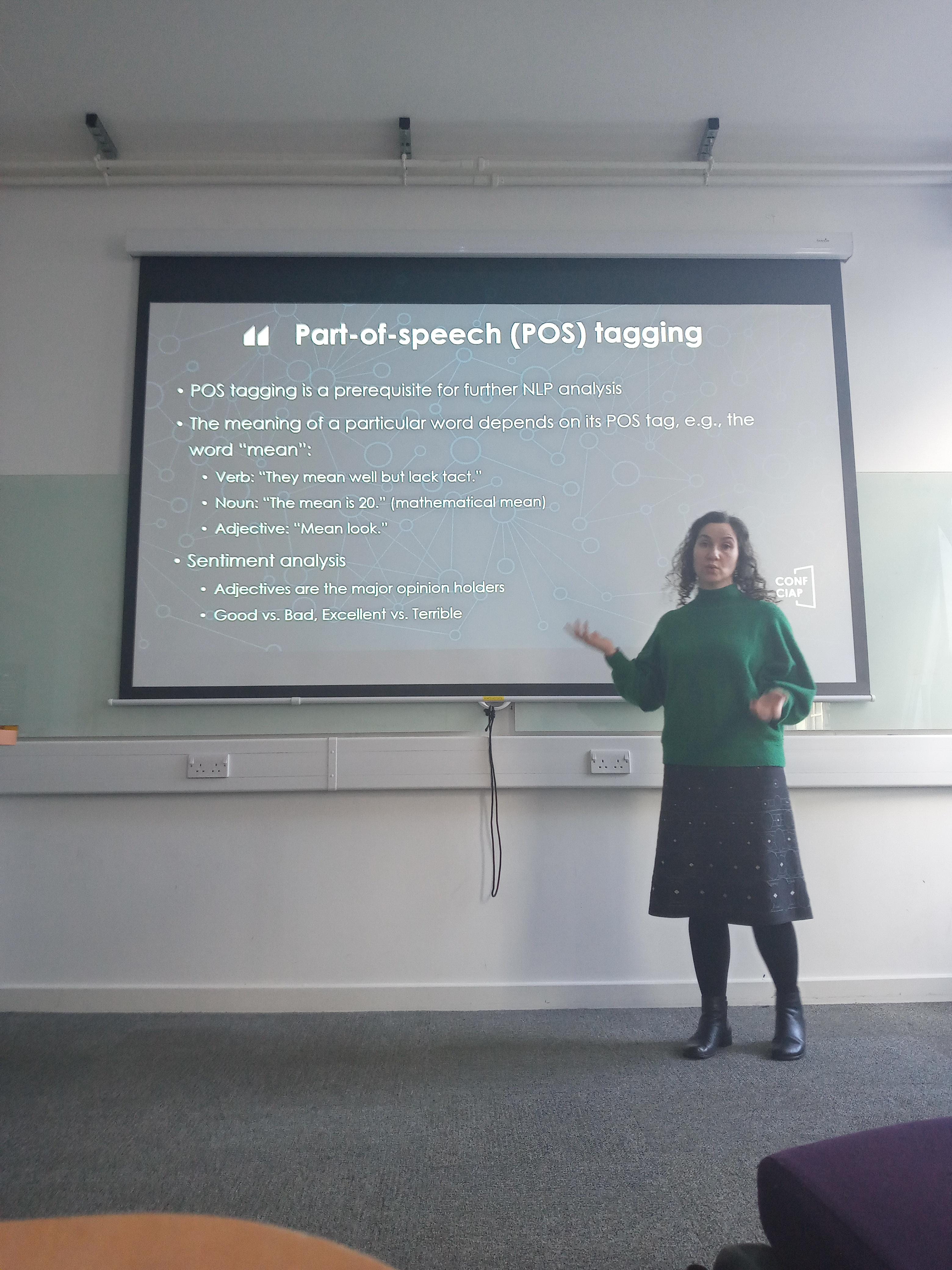
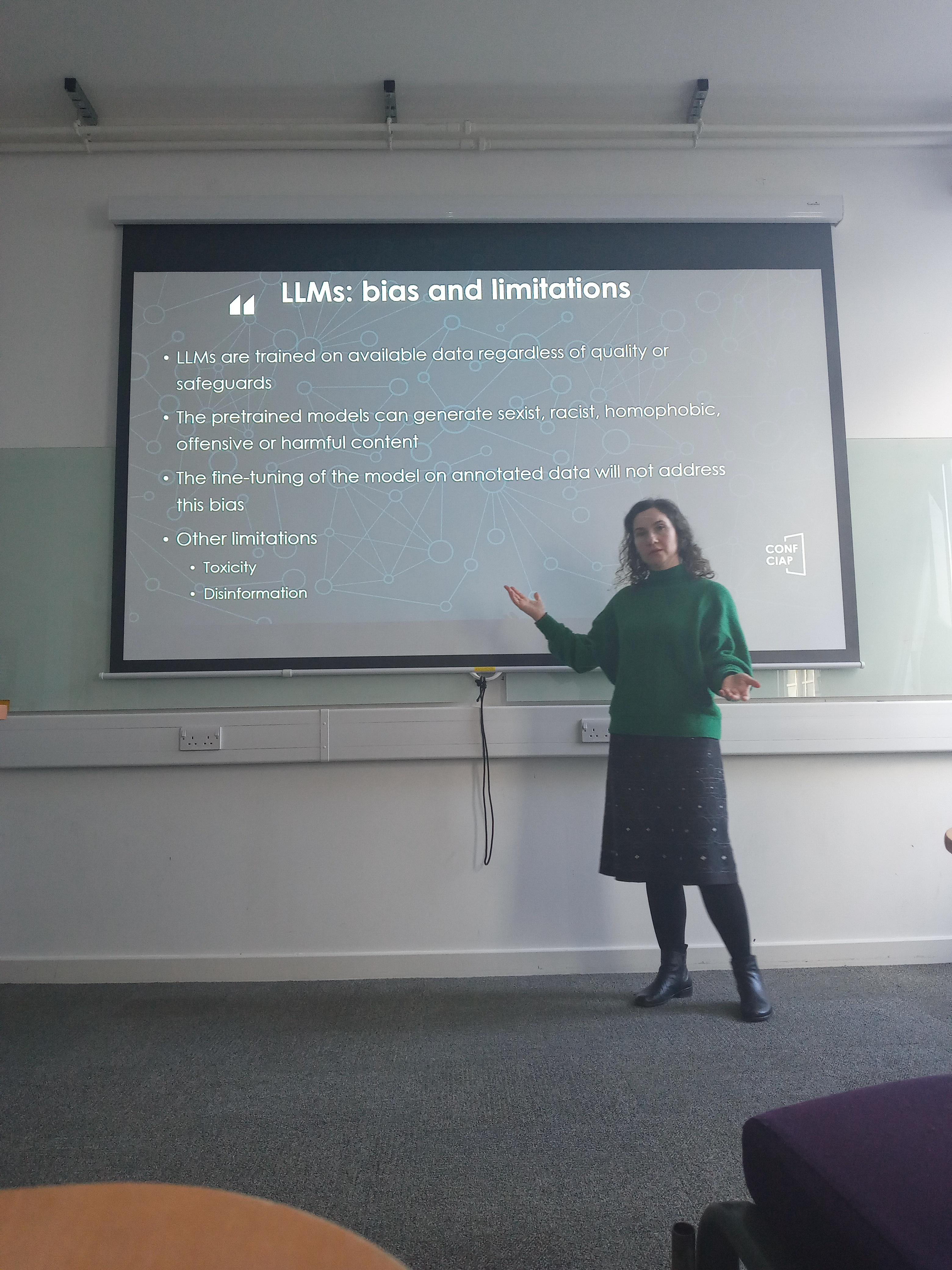
Access to Workshop:
CONF-CIAP 2024 Workshop -- Portsmouth--YouTube
Venue:
Buckingham Building, University of Portsmouth, Portsmouth PO1 3HE, UK

VISA:
Welcome to GOV.UK
In order to ensure the information is correct and up to date, there may be changes which we are not aware of. And different countries have different rules for the visa application. It is always a good idea to check the latest regulations in your country. This page just gives some general information of the visa application.
UK Visa Information
What you need to do
- Check if what you plan to do in the UK is allowed as a Standard Visitor.
- Check you meet the eligibility requirements.
- Check if you need to apply for a visa to visit the UK.
- Apply for a Standard Visitor visa online - if you need one.
Check you meet the eligibility requirements
You must have a passport or travel document to enter the UK. It should be valid for the whole of your stay.
You must be able to show that:
- you'll leave the UK at the end of your visit
- you're able to support yourself and your dependants during your trip (or have funding from someone else to support you)
- you're able to pay for your return or onward journey (or have funding from someone else to pay for the journey)
- you'll not live in the UK for extended periods through frequent or successive visits, or make the UK your main home
Check if you need a visa to visit the UK
Depending on your nationality, you'll either:
- have to apply for a Standard Visitor visa before you travel to the UK
- be able to visit the UK for up to 6 months without needing a visa
You can check if you need a visa before you apply.
If you do not need a visa, you must still meet the Standard Visitor eligibility requirements
to visit the UK. You may be asked questions at the UK border about your eligibility and the
activities you plan to do.
Attend in person:
If you want to attend the workshop on-site, please email the Conference Committee: info@confciap.org.
